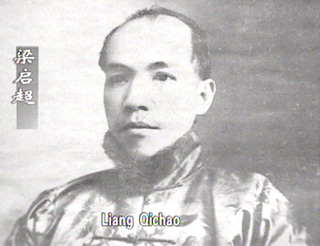 |
|
A Volatile World (4)
Hongxian Monarchy |
| CCTV.COM 2002-09-10 11:09:28 |
|
 In 1914, people of Nantong, a city close to the East China Sea, lived in peace while Jiaozhou Bay was under the flames of war. Textile mills of Dasheng Group were busy in production. The supply fell short of demand. European countries and the United States were forced to reduce the export of their products because of the First World War. That gave Chinese factory owners a chance for development. The number of companies registered at the Ministry of Agriculture and Commerce had been increased within several years. Zhang Jian was the owner of Dasheng Textile Mill and Cabinet Minister for Agriculture and Commerce in Beijing. During this period, Beijing government continued to promulgate many decrees and laws by following the western legal system. They covered a wide range of subjects and were issued in the name of President Yuan Shikai. Among them was a decree for respecting Confucius that didn't go well with other new laws. In 1914, people of Nantong, a city close to the East China Sea, lived in peace while Jiaozhou Bay was under the flames of war. Textile mills of Dasheng Group were busy in production. The supply fell short of demand. European countries and the United States were forced to reduce the export of their products because of the First World War. That gave Chinese factory owners a chance for development. The number of companies registered at the Ministry of Agriculture and Commerce had been increased within several years. Zhang Jian was the owner of Dasheng Textile Mill and Cabinet Minister for Agriculture and Commerce in Beijing. During this period, Beijing government continued to promulgate many decrees and laws by following the western legal system. They covered a wide range of subjects and were issued in the name of President Yuan Shikai. Among them was a decree for respecting Confucius that didn't go well with other new laws.
A large group of people gathered in front of the Confucius Temple in Beijing on September 28, 1914 to hold a memorial ceremony. Yuan Shikai seldom or never went out of the Imperial Palace but came to preside over the ceremony to worship Confucius. During the ceremony, he knew nothing of fatigue but knelt down to kowtow. Three months later attired in the same dress, Yuan was seen in the Temple of Heaven. He was President of the National Republic. But his devout reverence in worshiping Heaven surpassed that of a Qing emperor. Since then, he had never left Zhongnanhai, the imperial compound enclosed with tall walls.
Yuan Shikai disclosed the Nationalist Party and Parliament in less than two years. A presidential election law was promulgated on New Year’s Day of 1915 that said President could renew his term of office throughout his life and was entitled to appoint his successor.
 The then Cabinet Minister for Justice, Liang Qichao, came to realize that it was only a question of when the monarchy would be restored. He had been a leader of the Constitutionalism and now was a supporter of the republican government. After resigning his post of office in the Yuan government, Liang moved to live in Tianjin. Then he wrote to Yuan and implored him to rein in before it was too late. He had never thought that the letter would almost kill his life. The then Cabinet Minister for Justice, Liang Qichao, came to realize that it was only a question of when the monarchy would be restored. He had been a leader of the Constitutionalism and now was a supporter of the republican government. After resigning his post of office in the Yuan government, Liang moved to live in Tianjin. Then he wrote to Yuan and implored him to rein in before it was too late. He had never thought that the letter would almost kill his life.
Liang Qichao tried hard to escape Yuan’s murder and went to live in a Japanese concession in Tianjin. In early August he read an article that advocated China should establish a constitutional monarchy. The writer was Frank Johnson Goodnow, a noted American expert in political science and Yuan’s constitutional adviser. Yang Du and those who advocated a monarchy in secret were organizing a pacification meeting in Beijing. They discussed how to change the state system and openly carried out activities to restore a monarchy.
On August 20, Liang Qichao wrote an article and published it in his journal “Great China”. The article was entitled: What A Strange Idea on the So-Called State System! It strongly repudiated the restoration of a monarchy and was carried in many newspapers of Beijing and Tianjin.
Getting wind of it, Yuan Shikai sent over 200,000 silver dollars and asked Liang not to publish his article, but Liang flatly refused.
The old fogies of the former Qing Dynasty who still lived in the Forbidden City were on tenterhooks after hearing about Yuan’s establishment of a monarchy. They discussed they would leave the Imperial Palace on their own initiative and move to the Summer Palace if President Yuan proclaimed himself Emperor. On December 12, 1915, Yuan Shikai published an open telegram to the nation and declared to accept the throne. Four years ago, a republic was established in China after overthrowing the monarchy. Now the country saw a new emperor again.
|
|
Editor: Liu Baoyin CCTV.com
|
|
|
|
|
|
 |









